Top 10 patent cases of the year 2023
Landmark judgments were the order of the day in 2023, with the JUVE Patent top 10 patent cases of the year demonstrating the power of cross-border teams as well as life-changing technological developments. This year saw the first major mRNA battles kick off between Moderna, CureVac, BioNTech and Pfizer in Germany and the Netherlands, with the latter country's decision in the apixaban case causing the market to sit up and take notice. While a much-anticipated FRAND judgment was published in InterDigital vs. Lenovo, yet new SEP battles also emerged after Panasonic filed cases against Xiaomi and Oppo. This, as well as the dispute between Agfa and Gucci, demonstrates how parties are already harnessing the power of the Unified Patent Court.
20 December 2023 by Amy Sandys
JUVE Patent’s top 10 patent cases in Europe 2023:
- Agfa against Gucci showcases potential of UPC
- AIM Sport and Supponor leads to first UPC judgment, via Europe-wide tactics
- Amgen revives patent cases against Sanofi and Regeneron in Europe and at the UPC
- Apixaban dispute sets precedent for plausibility in the Netherlands
- Formycon and Janssen Biotech put EU SPC waiver to the test in Munich
- G1/22 and G2/22: Enlarged Board of Appeal simplifies transfer of priority rights
- High-profile COVID-19 vaccine battles launch across Europe
- Panasonic launches first SEP suits against Xiaomi and Oppo at the UPC
- UK court hands down landmark FRAND judgment in case between InterDigital and Lenovo
- UKIPO suspends guidelines on AI patents after High Court judgment
Agfa against Gucci showcases potential of UPC
Luxury goods manufacturers likely to choose pan-European court as patent battle ground
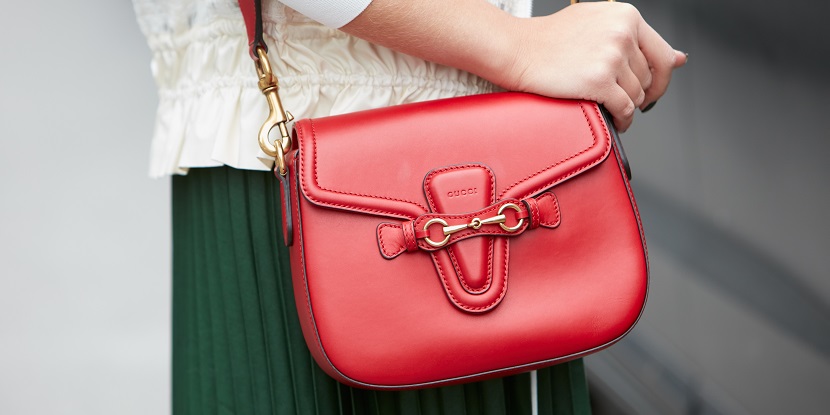
In August, Agfa filed a patent infringement case against luxury brand Gucci, which involves how leather products are printed. ©andersphoto/ADOBE STOCK
At the end of August, printing company Agfa sued luxury goods brand Gucci at the Hamburg UPC local division (case ID: ACT_561734/2023). The case concerns Agfa’s patent EP 3 388 490, which covers a manufacturing method for embellishing natural leather with a decorative image – a key future field for Agfa.
The latter accuses Gucci of using this method to decorate their leather products. Agfa is suing numerous Gucci companies, including German and Belgian subsidiaries, over the patent. Should the court find in Agfa’s favour, the plaintiff would particularly benefit from a ruling that applies to numerous European countries, given the case concerns consumer goods.
The case between Agfa and Gucci demonstrates the attractiveness of the UPC in traditionally less litigious sectors – for example, the consumer goods industry rarely sees patent cases at national courts, although the companies often go head-to-head over trademarks and copyright. For such companies, the offer of a potential European-wide injunction makes the UPC an attractive venue. This is especially due to the potential number of countries in which such goods, including luxury items, are sold.
Find out more on the case and its advisors here
Amgen revives patent cases against Sanofi and Regeneron at the UPC
Battle over cholesterol-lowering drugs Repatha and Praluent picks up speed in 2023

Amgen on one side, and Sanofi and Regeneron on the other, have fought over the market share of their cholesterol-lowering drugs since 2016. ©Ngampol/ADOBE STOCK
Sanofi and Regeneron have been fighting with Amgen over the market share of each company’s cholesterol-lowering drugs since 2016. Amgen sells its product under the Repatha brand, while Sanofi and Regeneron are on the market with Praluent.
In 2019, the battle appeared to peak when Amgen suffered a heavy defeat. The EPO’s Technical Boards of Appeal maintained Amgen’s EP 2 215 124 but in a drastically amended form, to the extent that the patent no longer infringed Sanofi’s Praluent product. Amgen’s enforcement of a PI injunction from the Regional Court Düsseldorf was therefore found to be invalid.
From then on, in Germany and other European countries in which Amgen had enforced judgments over EP 124, the main focus was on damages and compensation for unjust enrichment. According to JUVE Patent information, Sanofi and Regeneron are claiming several hundred million from Amgen in Germany alone for temporarily not being allowed to sell their product Praluent. There are three different proceedings concerning money pending at the Regional Court Munich (case IDs: 44 O 8184/21; 44 O 8179/21; 44 O 3725/22).
In 2023, the dispute between Amgen and Sanofi and Regeneron gained new momentum when both sides filed suits over new patents. Amgen filed a case at the Regional Court Munich, claiming Praluent infringes its EP 2 641 917. But the dispute recently also reached the UPC: on the first day of its launch, a new battle played out when Sanofi and Amgen raced to file a revocation and infringement action, respectively, based on Amgen’s patent EP 3 666 797.
After the EPO granted EP 797, Amgen chose not to opt-out the patent. Sanofi and Regeneron then filed a revocation action at the UPC central division in Munich (case ID: ACT_459505/2023). But, only a few hours later, Amgen filed an infringement suit against Sanofi at the Munich local division (case ID: ACT_464985/2023).
Back in Munich and at the end of November 2023, the regional court ruled that Amgen must provide information on and account for the profits made with its drug between March 2018 and February 2022. Sanofi and Regeneron are therefore entitled to compensation for Amgen’s profits during the period in which the Düsseldorf PI judgment was enforced. At the same time, the Munich judges dismissed a counterclaim by Amgen, finding Praluent does not infringe Amgen’s EP 917 (case ID: 44 O 8184/21).
In this battle, neither side is giving gifts to the other. It is therefore very likely that Amgen will appeal against the current ruling of the Regional Court Munich. The two sides are also engaged in various opposition proceedings and have launched numerous side disputes, meaning a quick settlement is considered very unlikely.
Find out more on the cases and the advisors here and here
AIM Sport and Supponor case leads to first UPC judgment, via Europe-wide tactics
Parties have litigated in Germany and the UK, before taking their debate to Helsinki – and thus the UPC
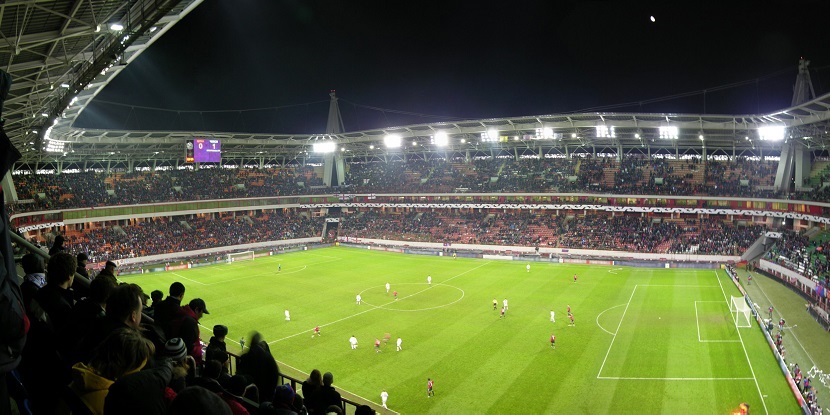
The battle between AIM Sport Vision and Supponor over sports stadium advertising has reached the UPC local division in Helsinki. ©Pavel Losevsky/ADOBE STOCK
Towards the end of September, the UPC’s local division in Helsinki issued its first judgment in the case between AIM Sport and Supponor, over targeted advertising technology for sports stadiums. Not only was this the first decision issued by this particular local division, but it was also the first time the UPC had handed down a full judgment. In the proceedings, the court employed specific UPC case law to emphasise the importance of parties understanding the opt-out procedure.
In their decision, the judges rejected AIM Sport Vision’s request for a preliminary injunction against its competitor. This was based on the patent in dispute, EP 3 295 663, initially having been opted out of the UPC. Although patent holder AIM Sport withdrew the opt-out, the judges deemed this to contravene Article 83(4) of the Agreement on the Unified Patent Court (UPCA). This states that “an opt-out can be withdrawn anytime as long as no action has been brought before a national court in respect of the application, patent or SPC subject to the opt-out.”
Earlier in the year, the UK High Court also ruled that the EP 663 was valid and infringed by Supponor, while in 2022 the Regional Court Munich also found that Supponor infringed the patent. As such, the German judges ordered Supponor to discontinue sales, pay damages, provide information and destroy the products. However, the German Federal Patent Court then fully upheld the national part of the patent.
With its Europe-wide reach, this case also demonstrates a wide breadth of law firms involved. In the German proceedings, Noerr acted for AIM Sport, while in the UK the IP boutique Powell Gilbert stepped up to the plate. In Helsinki, the company engaged the same teams, but with the addition of Rospatt Osten Pross and Finnish firm Roschier. Likewise, Supponor relied on Gleiss Lutz and Witte Weller & Partner in Germany, as well as Ignition Law for the UK High Court proceedings. However, at the UPC, a team from Hogan Lovells in London and Düsseldorf worked alongside Gleiss Lutz. The company also engaged local Finnish firm Hannes Snellman.
Find more information on the UK case here, the German case here, and the UPC case here
Apixaban dispute sets precedent for plausibility in the Netherlands
Bristol-Myers Squibb triumphs over generics Stada, Teva and Sandoz in Dutch apixaban dispute

A Court of Appeal ruling saw Sandoz, Stada and Teva remove their generic versions of apixaban from the Dutch market. ©Soni’s/ADOBE STOCK
Sandoz, Stada and Teva are currently not allowed to sell their generic versions of the blood-clot drug apixaban in the Netherlands. This was decided by the Court of Appeal in The Hague in mid-August.
Blood thinner Eliquis is one of Bristol-Myers Squibb’s most important blockbuster products. The company owns EP 1 427 415 and a corresponding supplementary protection certificate which covers the compound apixaban. By thinning the blood, the drug can help treat thromboembolic disorders such as blood clots, especially following hip or knee surgery.
For two years, a dispute has raged throughout Europe over the market entry of generic products containing the active ingredient apixaban. In the Netherlands, Bristol-Myers Squibb has succeeded for the first time in removing generic products sold by Sandoz, Stada and Teva from the market. The Court of Appeal ruled in an emergency decision that all three generic drug manufacturers’ products infringe Bristol-Myers Squibb’s apixaban SPC, which is based on EP 415 (case IDs: 200.327.532/01 and 200.327.173/01).
The companies are no longer allowed to register their generic apixaban products on the so-called ‘G-Standaard’. Meanwhile, Stada, Sandoz and Teva have ceased to sell their products in the Netherlands. Sandoz and Teva have appealed the decision to the Dutch Supreme Court, claiming procedural errors. However, it will not discuss the validity of EP 415 and infringement.
In May 2022, Bristol-Myers Squibb tried to force Sandoz out of the Dutch market, but failed to obtain a PI at the District Court of The Hague. However, following the decision of the Enlarged Board of Appeal in G 2/21 on plausibility, the company brought new PI proceedings against Sandoz. Meanwhile, Stada and Teva had entered the Dutch market; Bristol-Myers Squibb filed PIs against the two generics companies, which the first-instance court rejected.
However, the Court of Appeal overturned this decision after the Enlarged Board of Appeal handed down the G2/21 ruling. The likelihood of the court finding EP 415 valid in the pending nullity proceedings is high, meaning the court granted a PI against the three generics companies.
On 13 October, however, the District Court of The Hague heard the main action brought by Bristol-Myers Squibb against Sandoz, which responded to the infringement suit with a revocation claim. It is likely that the court will publish its judgment at the beginning of January. In addition, on 12 January the same court will hear the main case against Teva.
Courts in France, the UK, Italy and Norway are also playing out the dispute. At the EPO, the companies are currently fighting intensively, with a Technical Boards of Appeal hearing taking place on 21 December. The Opposition Division had previously revoked EP 3 246 021, after twelve opponents filed an opposition against its grant.
Find out more on the cases and the advisors here and here, as well as an in-depth look at the UK Court of Appeal case here.
G1/22 and G2/22: Enlarged Board of Appeal simplifies transfer of priority rights
Dispute over antibody puts an end to years-long practice
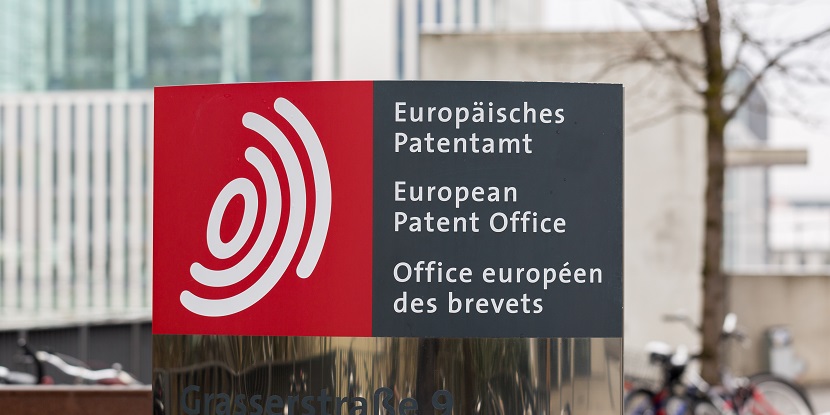
The Enlarged Board of Appeal’s latest decision simplifies the transfer of priority rights for an application to the EPO. ©Chris Redan/ADOBE STOCK
An EPO applicant is now presumed to be the rightful owner of the priority rights of the patent they are filing. This is now the case, even when an applicant is different from the applicant of the priority application, and despite there being no formal proof of a priority rights transfer.
Following a decision of the Enlarged Board of Appeal in the G 1/22 and G 2/22 referrals, the responsibility to prove otherwise lies with a potential opponent in opposition proceedings.
A dispute between Alexion and several opponents over antibody eculizumab (case IDs: T 1513/17 and T 2719/19) led to the EPO changing years of practice, after its Opposition Division and Examining Division respectively found Alexion’s priority claim invalid. This was based on the fact that not all inventors named by the US patent application had assigned the priority right to the applicants of the respective European patent applications before the filing of the PCT application.
The problem regularly arises in priority claims based on US applications, which often name the inventors as patent applicants. On the other hand, at the EPO, it is often companies that file the patents. Thus, if the first application’s documents do not clarify that the priority rights for the application in other countries were transferred from the inventors to this company, until now the EPO has often declared the applicant’s priority rights claim to be invalid.
Where, at the time of filing, this was not already the case, competitors were often successful in oppositions by attacking the priority claim. In the future, the applicant’s entitlement to priority is presumed to exist if the formal requirements for claiming priority are fulfilled (case ID: OJ EPO 2022, A92).
Find out more on the case and its advisors here
Formycon and Janssen Biotech put EU SPC waiver to the test
Regional Court Munich issues narrow interpretation of EU regulation

The disputed SPC covers a monoclonal antibody used against the skin disease psoriasis, as well as Crohn’s disease. ©fussergei/ADOBE STOCK
When the EU amended its SPC regulation in 2019, the aim was to ensure a level playing field between EU-based generic pharmaceutical companies and their competitors from third countries.
Under certain circumstances, they can produce and market their imitation product of an original drug, even when an SPC still protects the latter (EC 2019/933). The so-called manufacturing waiver applies, for example, if a generic or biosimilar drug is destined for export to third countries outside the EU where the SPC protection does not exist.
As such, Formycon announced its intention to launch a biosimilar of Janssen Biotech’s psoriasis drug Stelara, following the expiry of its patent and related SPC in July 2024. The patent owner applied for a preliminary injunction at the Regional Court Munich, arguing that the defendant must produce a relevant marketing authorisation before it could begin distribution upon the patent’s expiry.
Since Formycon could not yet produce a marketing authorisation number for the biosimilar in a third country outside the EU, the Munich judges issued a PI (case ID: 21 O 12020/23). This is one of the first rulings in which a court has applied the 2019 amendment to the SPC regulation. In the future, this could play a major role when it comes to biosimilars entering markets in which the SPC has no effect.
Find out more on the case and its advisors here
High-profile COVID-19 vaccine battles launch across Europe
Validity suits in disputes over mRNA patents between Moderna and CureVac, against BioNTech and Pfizer, throw a spanner in the works

Moderna has sued Pfizer and BioNTech for patent infringement in Europe and the US ©myskin/ADOBE STOCK
This year saw the oral hearings in the battle over mRNA patents covering COVID-19 vaccines begin. In 2022 first CureVac, then Moderna, had sued Mainz-based competitor BioNTech and its partner Pfizer for infringement of their respective patents. Both companies did not aim for an injunction against future sales of BioNTech’s “Comirnaty”, but rather sought only damages.
Mid-August marked the start of the high-profile infringement trial between CureVac and BioNTech at the Regional Court Düsseldorf. The claimant accused the Mainz-based biotechnology firm of infringing two patents and three German utility models. The defendant reacted by filing a cancellation request at the German Patent and Trade Mark Office (DPMA) for the utility models and a nullity suit against EP 1 857 122 B1. They also filed an EPO opposition against EP 3 708 668 B1.
After initially announcing a first ruling on the case regarding the utility models and EP 668 for end of September, the 4c chamber of the Düsseldorf court suspended proceedings awaiting the validity verdict. Regarding the EP 122 however, the German Federal Patent Court yesterday nullified the patent (case ID: 3 Ni 23/22). Following yesterday’s judgment, it is unlikely that the Regional Court Düsseldorf will hand down its infringement ruling as planned on 28 December.
Meanwhile Moderna is going head-to-head with BioNTech and Pfizer in several countries, including Germany, the UK, the Netherlands, Belgium and Ireland. The dispute revolves around Moderna’s two patents, EP 3 590 949 B1 and EP 3 718 565 B1. However, Moderna has so far seen several setbacks. After the Opposition Division of the EPO revoked EP 565 in November, the District Court of The Hague declared the Dutch part of EP 949 invalid only a few weeks later. A UK decision is expected in mid-January.
In Germany, the oral hearing at the Regional Court Düsseldorf originally scheduled for 12 December was suspended by the 4b chamber. It awaits first the EPO decision on validity in the opposition proceedings.
Find out more on the case and its advisors here (CureVac suits) and here (Moderna suits)
Panasonic launches first SEP suits against Xiaomi and Oppo at the UPC
Panasonic’s wave of lawsuits has the potential to become the biggest SEP battle of 2024
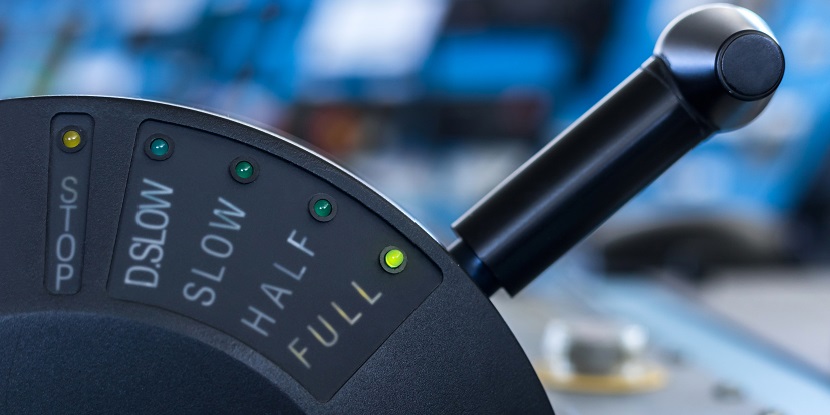
The major SEP dispute between Panasonic, Xiaomi and Oppo spanning multiple jurisdictions has ramped up after the UK High Court ordered a FRAND trial for 2024. ©momentscatcher/ADOBE STOCK
Xiaomi and Oppo are facing 24 lawsuits filed by Panasonic in Europe, including at the UPC, with proceedings also pending in China. However, the full extent of the dispute will only become clear when Oppo and Xiaomi submit their statements of defence and thus potentially file nullity suits against the Panasonic patents. All patents-in-suit are relevant for the WCDMA and LTE standards.
The dispute is still in its infancy, with Panasonic only filing its claims in July 2023 after years of negotiations. Panasonic has launched actions against the two Chinese implementers at the UPC, the UK High Court and at the regional courts in Mannheim and Munich. Now, however, the dispute is moving faster than expected. In mid-November, the UK ordered an accelerated procedure to first decide on a global FRAND rate. Panasonic had sued Xiaomi and Oppo in the UK on the basis of four patents, with Oppo and Xiaomi questioning the validity of the patents-in-suit.
UK judge Richard Meade ordered an initial FRAND trial for both implementers in the fourth quarter of 2024 (case ID: HP-2023-000025). Thus, the court is following previous reasoning from London: namely, that courts should first clarify the FRAND rate before entering into the often lengthy technical trials. As a result, UK proceedings could become quicker, and thus establish the High Court as the central court for determining FRAND rates globally.
It is also the UPC’s most extensive series of SEP lawsuits to date. Panasonic filed a total of twelve lawsuits against both implementers at the UPC local divisions in Mannheim and Munich. This also makes it, currently, the biggest dispute at the UPC.
Autumn 2024 will be decisive for Xiaomi and Oppo. While the courts in mainland Europe have not yet scheduled any oral hearings, judges could issue the first rulings in the fourth quarter of 2024. Xiaomi and Oppo may then face their first injunctions on the continent in this dispute. Xiaomi in particular had pushed for the UK High Court to rule on the FRAND rate before the UPC and the German courts. The dispute could become a model for the interplay between the UK High Court and the UPC in global SEP disputes.
Find out more on the cases and the advisors here and here
UK court hands down landmark FRAND judgment in InterDigital vs. Lenovo
Besides determining a FRAND rate, James Mellor rules on payment of interest

The case between InterDigital and Lenovo saw presiding judge James Mellor hand down a FRAND decision in March 2023. ©Arthon/ADOBE STOCK
When the UK High Court handed down its long-awaited decision on FRAND-rate setting in the dispute between InterDigital and Lenovo in March, it made quite a splash in the patent community. The court ordered Lenovo to pay a FRAND rate of $138.7 million, while the judgment declared both parties’ previous offers as non-FRAND. While the court took jurisdiction to determine a FRAND offer for Lenovo to accept, it also noted that Lenovo had conducted itself as a willing licensee.
But this was not the final outcome of the first-instance hearing: in the March 2023 judgment, presiding judge James Mellor said he “remained undecided whether to award interest on past royalties”. In June he released two further decisions which clarified his approach on confidentiality, as well as considering the costs associated with the trial.
However, the main question was whether it would be FRAND to order Lenovo to pay interest on the lump sum. Ultimately the court decided to award compound quarterly interest on the $138.7 million. This equals $46.2 million, meaning Lenovo is paying InterDigital $184.9 million overall. Nevertheless, Mellor declared Lenovo the ‘overall winner’ of the FRAND trial.
InterDigital initially alleged that Lenovo infringed five SEPs in the UK. The NPE claimed that all patents were essential to the 3G and 4G UMTS and LTE standards. The patents, EP 2 485 558, EP 2 363 008, EP 2 557 714, EP 2 421 318 and EP 3 355 537 are part of InterDigital’s portfolio.
As the first FRAND decision since the landmark Supreme Court judgment in Unwired Planet vs. Huawei, this helps secure the UK’s reputation as a hub for global FRAND-rate setting. Both decisions cement the London patent courts as being patent-holder-friendly, potentially opening the door for future global FRAND disputes.
Find out more on the case and its advisors here
UK IPO suspends guidelines on AI patents after High Court judgment
New development could signal a shift in AI patenting
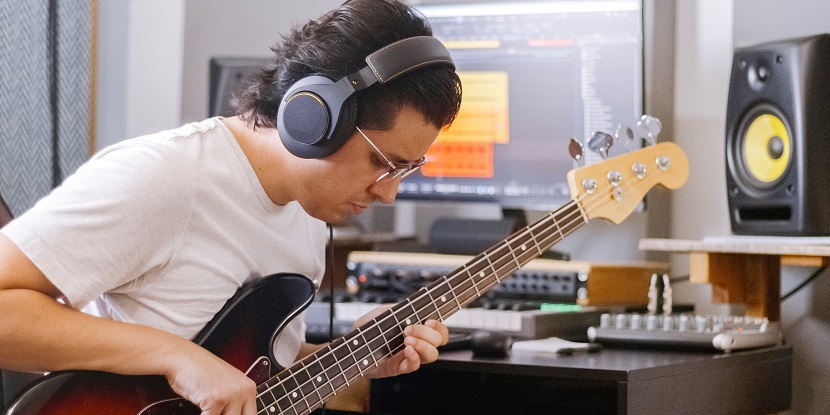
Emotional Perception’s AI technology enables music files to be linked in a different way to more commonly used search algorithms. ©aldo/ADOBE STOCK
The UK has once again raised the issue of which conditions AI can be patented under, following its latest decision regarding an artificial neural network (ANN). At the end of November, the UK High Court ruled on a patent application that the UK Intellectual Property Office (UKIPO) had previously rejected. In response to the ruling, the UK IPO suspended its guidelines on AI patents.
The case concerns a patent application by Emotional Perception AI for a system that recommends data files. The technology uses an ANN to, for example, organise music files in a different way than common search algorithms. The UK IPO had initially rejected the application in June 2022 on the basis that it constituted a “program for a computer” and was thus excluded from patentability in accordance with the Patents Act 1977.
In an appeal against the decision, however, the UK High Court has now found that the application cannot be excluded on this basis. Although the Patents Act 1977 forms the legal basis for the current judgment of the UK High Court (case ID: CH-2022-000144), specifically the application of section 1(2)(c) of the Patents Act 1977 which excludes from patent protection “a program for a computer … as such”, the presiding judge Anthony Mann decided that the disputed ANN technology does not fall under the exclusion.
As a direct reaction to the ruling, the patent authority temporarily suspended its own guidelines for examiners on AI inventions. It is unclear whether applicants will have to wait longer for the UK IPO to process their AI-related applications. But what is certain is that the judgment is contributing more widely to the discourse surrounding AI in the UK. Today, the Supreme Court in London will also hand down its final decision on whether AI system Dabus can be named as an inventor. Overall, the recent developments might see the UK become a more AI-patent friendly jurisdiction, albeit it one with differing guidelines to organisations such as the EPO.
Find out more on the case and its advisors here